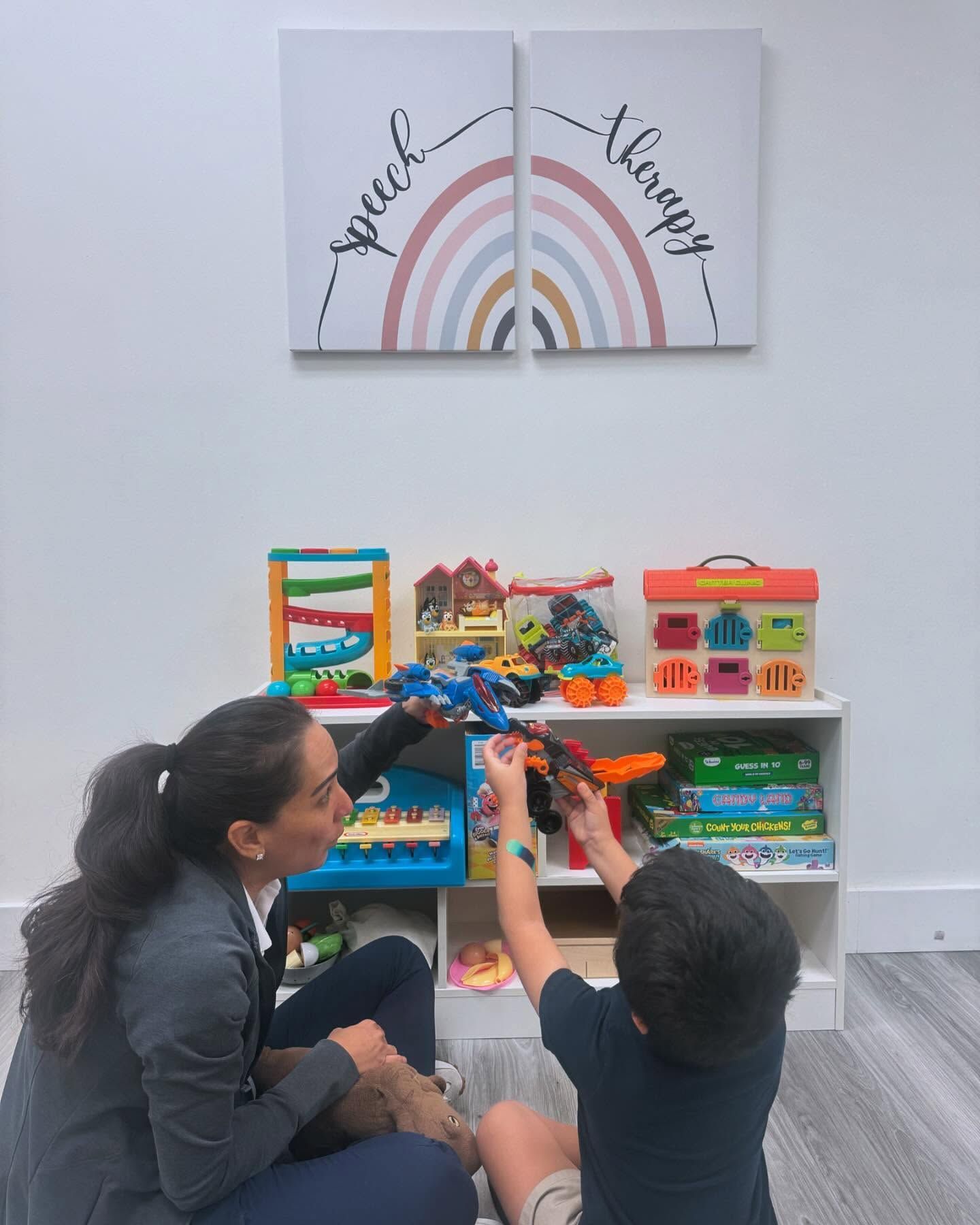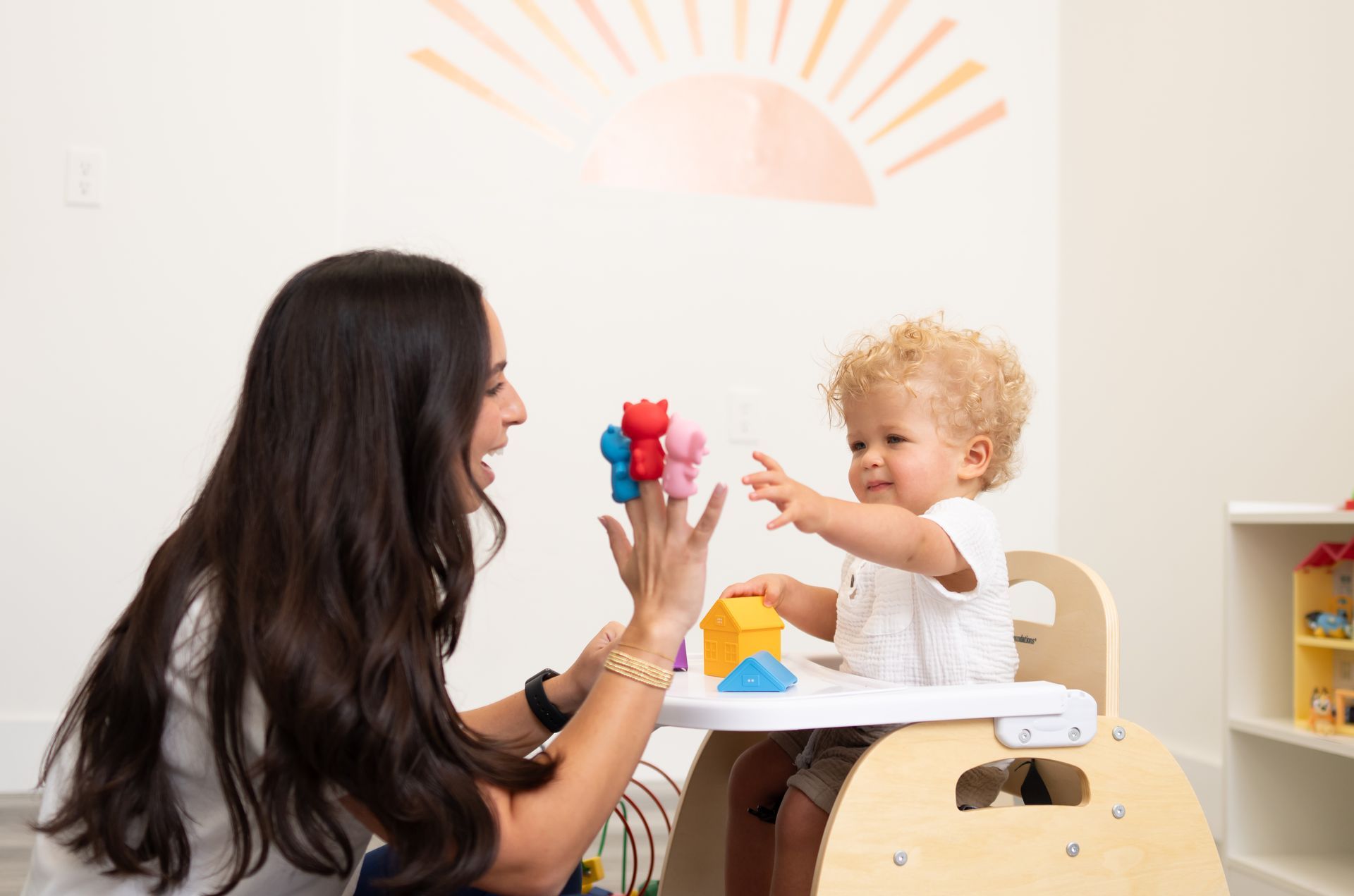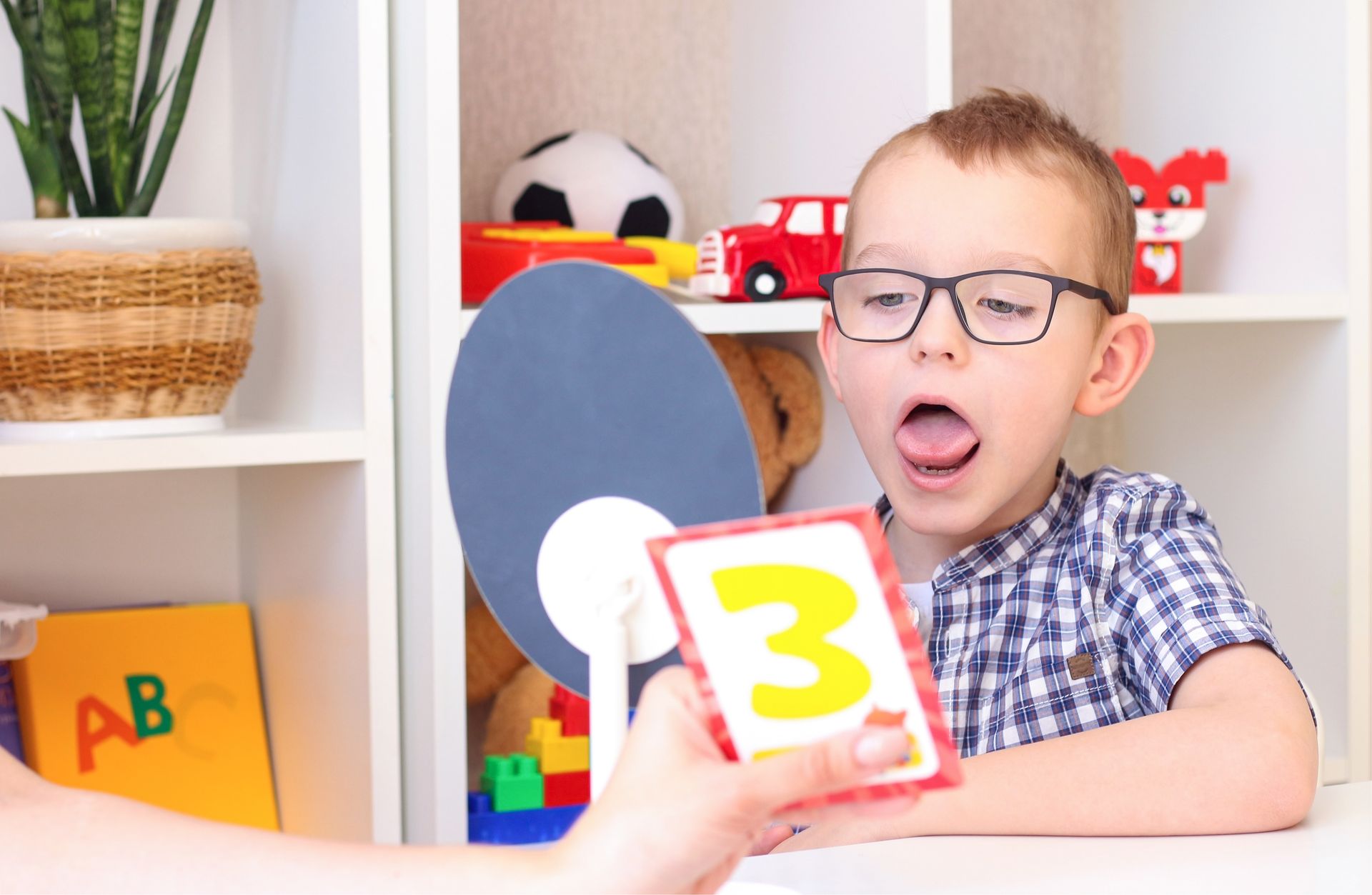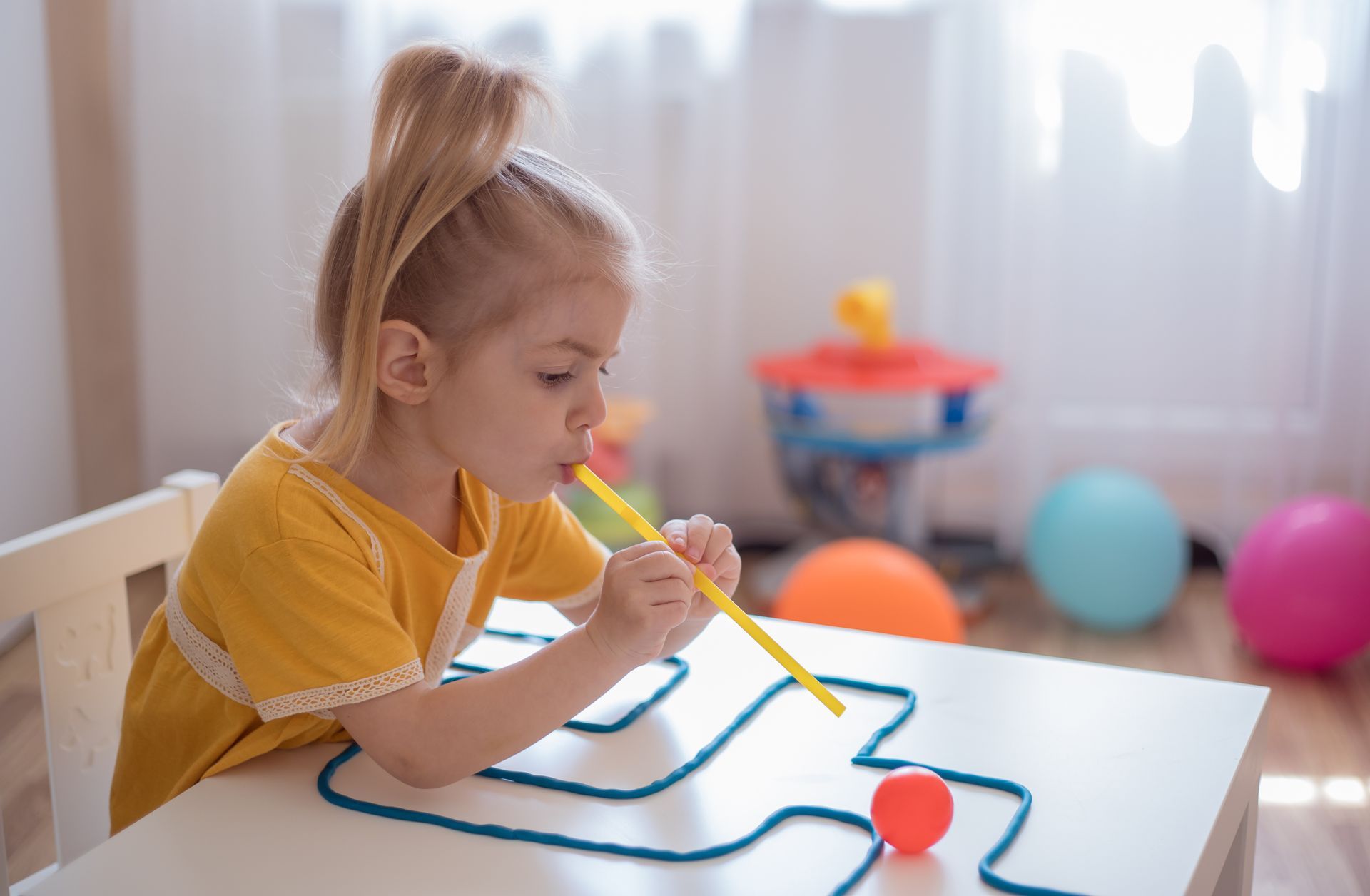
Speech-Language Therapy
Pediatric Speech and Language Therapy helps children develop communication skills essential for daily life, learning, and social interactions. Speech and Language Therapy focuses on improving speech clarity, language comprehension, expressive language, social communication, and feeding/swallowing abilities. Our speech-language pathologist will conduct a comprehensive assessment to determine a child's communication abilities, identify any speech or language delays, and create a targeted treatment plan if needed. This evaluation helps create a tailored therapy plan that focuses on the child’s specific needs, aiming to support and improve communication abilities in various settings. Set up an evaluation today by calling Children in Motion and Associates at (305) 668-3596.

Pediatric Speech and Language Therapy Evaluation Process
Case History Review: The SLP will gather detailed background information about the child's developmental, medical, and family history, which can provide context for any speech or language concerns.
Parent/Caregiver Interview: To better understand the child's strengths and challenges in daily communication, the SLP will discuss with parents or caregivers any concerns they have and observe how the child interacts in their home and school environments.
Standardized Testing: The SLP may use formal assessments that provide standardized scores. These tests can help evaluate specific areas like articulation, language comprehension, expressive language, social skills, and cognitive communication.
Observational Assessment: The SLP will observe the child’s communication skills in a more naturalistic setting. They may assess the child’s play, eye contact, turn-taking, gestures, and other non-verbal communication skills, as these are essential for language development.

Speech Sound and Phonological Assessment: If there are concerns about articulation, the SLP will evaluate how the child pronounces different sounds and determine whether any patterns are present that might need intervention.
Receptive and Expressive Language Evaluation: Receptive language refers to the child’s ability to understand language, while expressive language relates to their ability to use words and sentences to communicate. Both are assessed to ensure the child is meeting developmental milestones.
Social and Pragmatic Skills: For children with social or pragmatic language concerns, the SLP will assess the child’s ability to engage with others, understand conversational rules, and interpret non-literal language.
Motor Speech Skills: The SLP may examine the child’s motor skills to rule out any difficulties with muscle movements related to speaking. This is particularly relevant in cases of suspected childhood apraxia of speech or dysarthria.
Oral Motor Examination: The SLP might conduct an oral examination to assess the child's lips, tongue, and jaw movements, as well as their ability to produce specific sounds.
Feedback and Recommendations: After the evaluation, the SLP will provide feedback to parents or caregivers, outlining any areas of concern, diagnosis if applicable, and recommendations for therapy or home-based activities.





